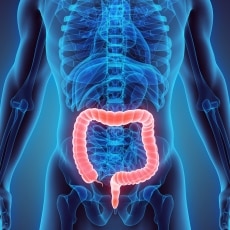
Colitis

Summary
Ulcerative colitis (UC) is a disease that causes inflammation and sores, called ulcers, in the lining of the rectum and colon. It is one of a group of diseases called inflammatory bowel disease.
UC can happen at any age, but it usually starts between the ages of 15 and 30. It tends to run in families. The most common symptoms are pain in the abdomen and blood or pus in diarrhea. Other symptoms may include:
- Anemia
- Severe tiredness
- Weight loss
- Loss of appetite
- Bleeding from the rectum
- Sores on the skin
- Joint pain
- Growth failure in children
About half of people with UC have mild symptoms.
Doctors use blood tests, stool tests, colonoscopy or sigmoidoscopy, and imaging tests to diagnose UC. Several types of drugs can help control it. Some people have long periods of remission, when they are free of symptoms. In severe cases, doctors must remove the colon.
NIH: National Institute of Diabetes and Digestive and Kidney Diseases
Source: MedlinePlus, National Library of Medicine.
Information pulled from the Ulcerative Colitis page.
MedlinePlus brings together authoritative health information from the National Library of Medicine (NLM), the National Institutes of Health (NIH), and other government agencies and health-related organizations.
Ulcerative Colitis
Mayo Foundation for Medical Education and Research
Ulcerative Colitis
National Institute of Diabetes and Digestive and Kidney Diseases
Bacteria Culture Test
National Library of Medicine
C-Reactive Protein (CRP) Test
National Library of Medicine
Calprotectin Stool Test
National Library of Medicine
Colonoscopy: MedlinePlus Health Topic
National Library of Medicine
Diagnosing and Monitoring IBD
Crohn's & Colitis Foundation of America
Gastrointestinal (GI) Bleeding
National Institute of Diabetes and Digestive and Kidney Diseases
Lower GI Series (Barium Enema)
National Institute of Diabetes and Digestive and Kidney Diseases
White Blood Cell (WBC) in Stool
National Library of Medicine
Colostomy - series
Medical Encyclopedia
Large bowel resection - Series
Medical Encyclopedia
Ostomy Surgery of the Bowel
National Institute of Diabetes and Digestive and Kidney Diseases
Probiotics: What You Need to Know
National Center for Complementary and Integrative Health
Surgery for Ulcerative Colitis
Crohn's & Colitis Foundation of America
Ulcerative Colitis Treatment Options
Crohn's & Colitis Foundation of America
Understanding IBD Medications and Side Effects
Crohn's & Colitis Foundation of America
What is Complementary Medicine?
Crohn's & Colitis Foundation of America
Listen to our
latest Podcast!





